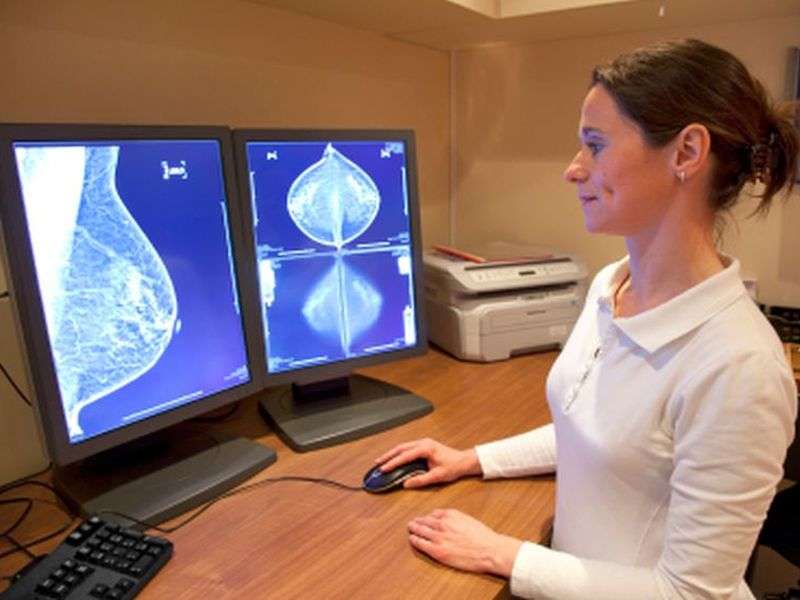Perceived breast density may affect single read suitability

(HealthDay)—Features related to mammographic breast density are key normal mammographic features that influence the difficulty for readers to classify mammograms as normal, according to a study published online Jan. 3 in the Journal of Medical Imaging and Radiation Oncology.
Zoey Z.Y. Ang, from the University of Sydney, and colleagues examined how breast screen readers classify normal screening cases using mammography features. Fifteen breast screen readers interpreted a set of 29 normal screening cases and classified them by their perceived difficulty to reach a "normal" decision. They identified the normal mammographic features of the cases and examined the cases' suitability for a single reading strategy.
The researchers observed a moderate to strong correlation between the difficulty to make "normal" decisions and regular ductal pattern, uniform density, non-dense breasts, symmetrical mammographic features, and overlapped density. Cases with regular ductal pattern, uniform density, non-dense breasts, and symmetrical mammographic features were more suitable for single reading, while cases with overlapped density were not.
"The findings suggest that perceived mammographic breast density has a major influence on the difficulty for readers to classify cases as normal and hence their suitability for single reading," the authors write.
More information: Full Text (subscription or payment may be required)
Copyright © 2017 HealthDay. All rights reserved.















